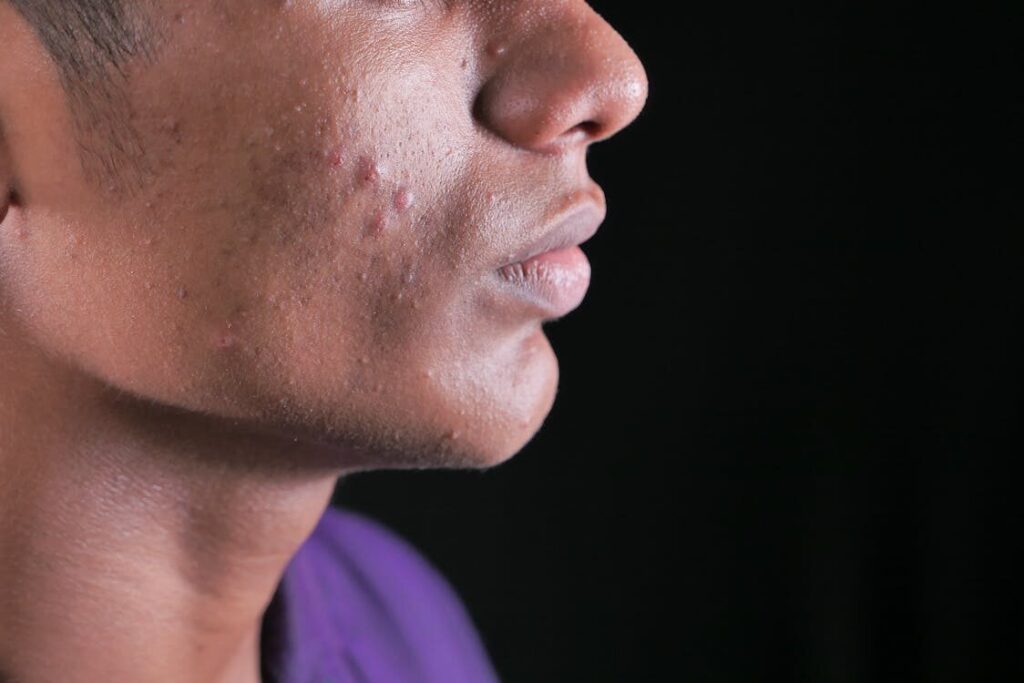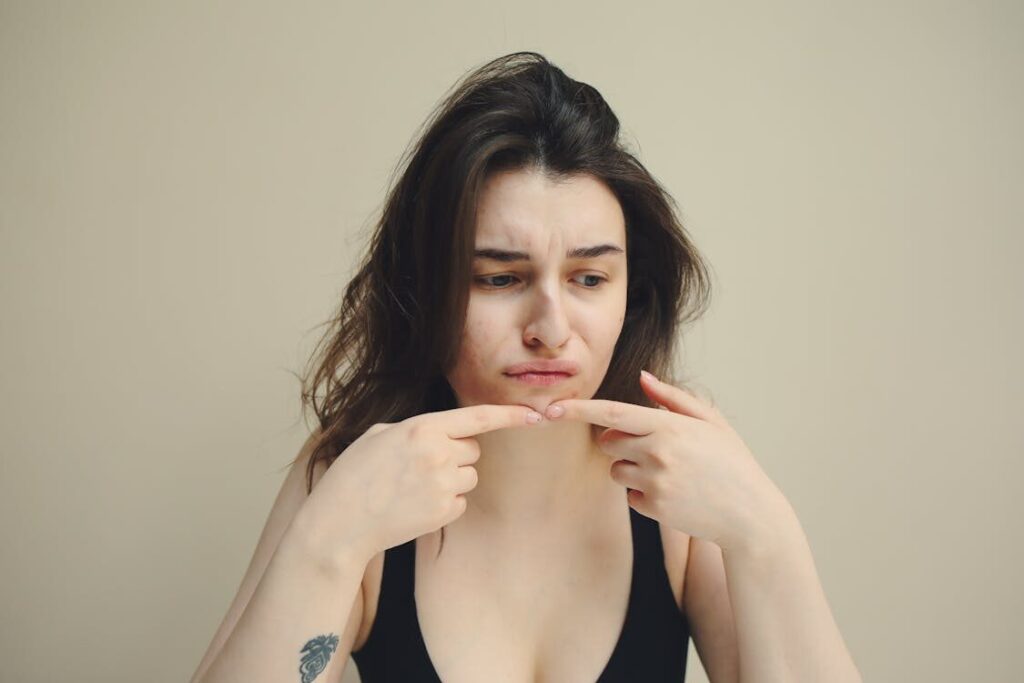Busting Acne Myths: Clear Skin Facts You Need To Know

Acne is a common skin concern that plagues millions. Despite how commonplace this condition is, it is often shrouded in confusion and misinformation.
For instance, many people believe acne is caused by bad habits, such as eating chocolates or not scrubbing your face hard enough.
The truth is much more complex, the underlying issues even more so. Fortunately, the solution is made all the simpler with our Acne Clearing Gel and other acne-clearing products for teens and adults.
Here is the truth behind some of the most popular myths about acne to get you on the path to clearer, healthier skin.
Myth #1: Greasy food causes acne.
While a balanced diet is crucial for overall health, there’s no direct link between greasy foods and breakouts.
Hormonal fluctuations and genetics primarily influence acne development. However, some studies suggest a connection between high glycemic index foods (sugary treats and refined carbs) and acne flare-ups.
In any case, nothing is good in excess, not greasy foods or the skincare products you end up using to clear the acne.
Myth #2: Scrubbing your face harder prevents acne.
Over-exfoliating or scrubbing your face harshly can actually worsen acne. It irritates the skin, stripping away natural oils and potentially leading to increased oil production to compensate.
All to say, gentle cleansing twice a day and using a lukewarm washcloth is sufficient.
Myth #3: You can “pop” your way to clear skin.

While the urge to pick at pimples is tempting, resist! Picking and popping can worsen breakouts by spreading bacteria and increasing inflammation. It can also lead to scarring.
Let pimples heal naturally, and if necessary, consult a dermatologist for extraction.
Myth #4: Moisturizer clogs pores and worsens acne.
This is a big misconception, especially for those with oily, aka acne-prone skin.
Skipping moisturizer can backfire, causing your skin to overproduce oil to compensate for the lack of hydration. Look for lightweight, oil-free moisturizers formulated for acne-prone skin.
Highly Recommended: HYDRATE + RESTORE MOISTURE BALANCE – Squalane
Myth #5: Acne is a sign of poor hygiene.
Cleanliness is important, but acne isn’t a reflection of hygiene habits. While washing your face regularly removes dirt and oil, it doesn’t address the underlying hormonal or genetic factors that contribute to acne.
What Can You Do for Clear Skin?
Now that you know better than to believe these acne myths, replace your existing habits with the following:
- Develop a gentle skincare routine:Cleanse twice a day with our Benzoyl peroxide wash for clear skin, followed by our squalane moisturizing cream.
- Consider topical acne treatments:Over-the-counter options often contain salicylic acid or benzoyl peroxide, which help exfoliate and reduce inflammation. For stubborn acne, consult a dermatologist for prescription medications.
- Maintain a healthy lifestyle:Aim for a balanced diet, get enough sleep, and manage stress – all of which can impact your skin health.
If you need more skincare advice for women or men, don’t hesitate to consult us for treatment and guidance.
